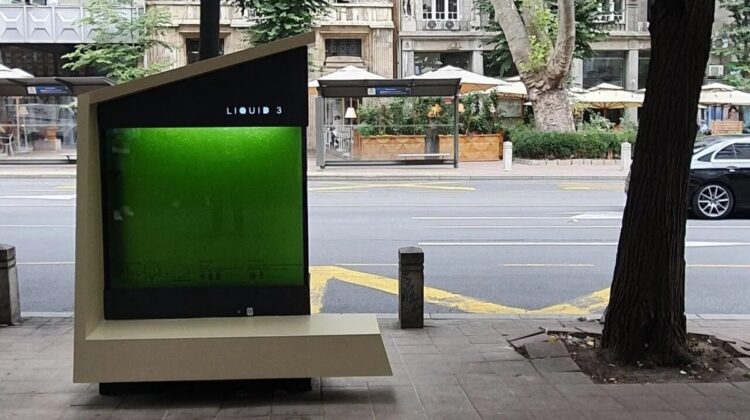
Serbia is taking bold strides in the fight against air pollution with the introduction of the groundbreaking ‘Liquid Tree,’ a first-of-its-kind urban photo-bioreactor designed to transform polluted cityscapes.
Serbia’s Air Pollution Crisis: Why Innovation is Essential
Belgrade, Serbia’s bustling capital, faces a dire pollution problem, exacerbated by emissions from coal power plants and high urban density. Ranking as the fourth most polluted city in the country, Belgrade’s pollution crisis demands immediate action.
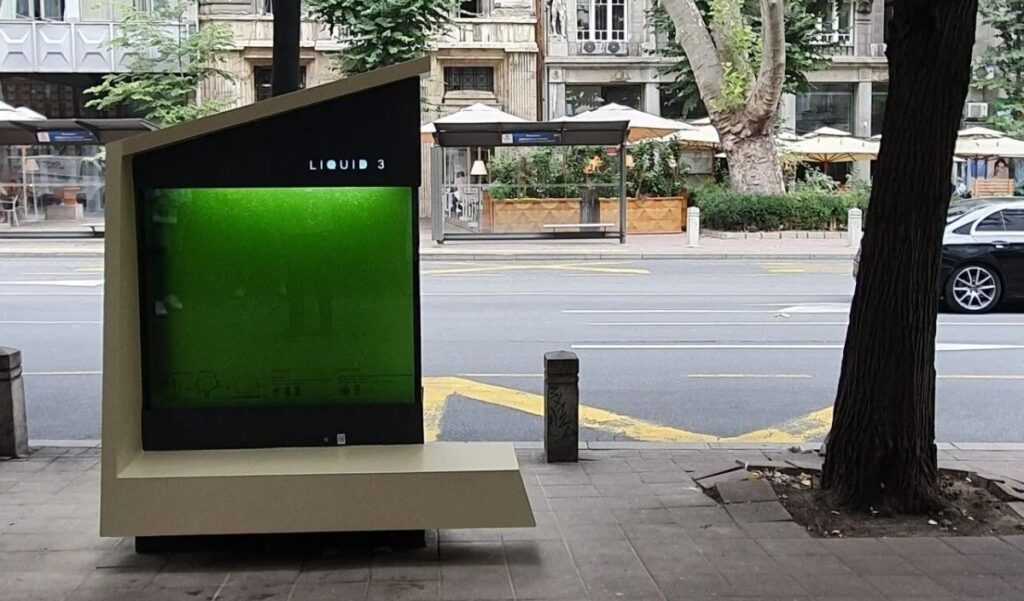
According to the Global Alliance for Health and Pollution, Serbia has the highest pollution-related death rate in Europe, with 175 deaths per 100,000 people annually. Traditional solutions like tree planting often fail in urban settings where space is limited. This is where Serbia’s “Liquid Tree” steps in, offering a space-efficient, eco-friendly alternative.
What is the Liquid Tree?
Dubbed LIQUID 3, this revolutionary technology is Serbia’s first urban photo-bioreactor. Installed in Belgrade’s busy Stari Grad district, the system uses microalgae suspended in a 600-liter tank to purify the air. The algae absorb carbon dioxide and release oxygen through photosynthesis, mimicking the functions of natural trees but with far greater efficiency.
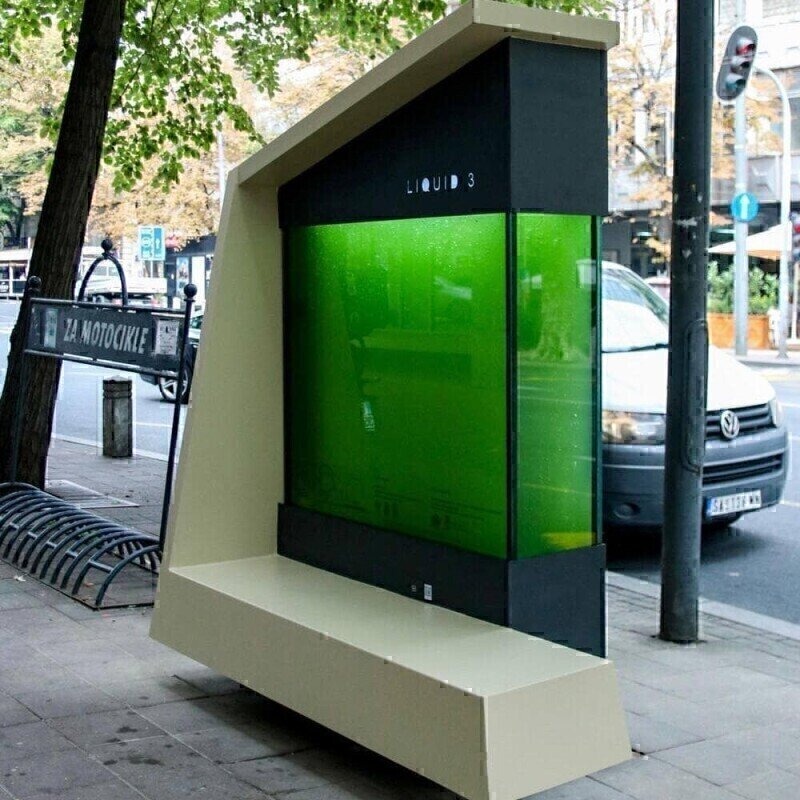
Dr. Ivan Spasojevic, the lead scientist behind this innovation, explains:
“The microalgae replace two 10-year-old trees or 200 square meters of lawn. They are 10 to 50 times more efficient than traditional trees in photosynthesizing and purifying air.”
Multifunctionality Meets Practicality
The Liquid Tree is more than an air purifier. Its thoughtful design includes:
- Seating Bench: Providing a resting spot for pedestrians.
- Mobile Charging Ports: Powered by solar panels.
- Night Lighting: Enhancing safety and usability after dark.
Maintenance is minimal. The freshwater algae, sourced locally, thrive in regular tap water and can withstand extreme temperatures. The system only needs maintenance every six weeks to remove excess biomass, which can be repurposed as fertilizer, making it a sustainable and cost-effective solution.
Addressing Urban Challenges with Innovation
Urban areas contribute to 75% of global CO2 emissions, primarily from traffic and buildings. With over 59% of Serbia’s population living in cities, finding viable solutions to combat air pollution is critical. Traditional tree planting often fails in dense urban environments due to limited space, making the Liquid Tree an ideal alternative.
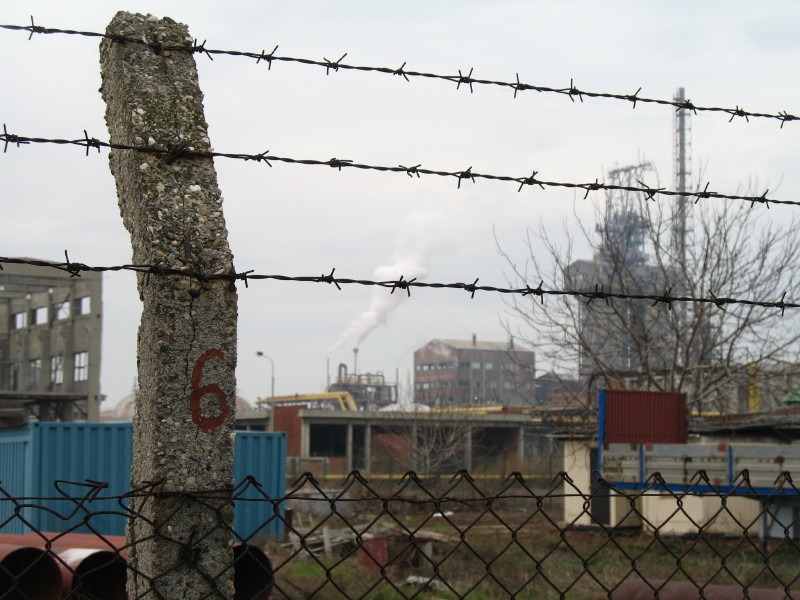
Global Recognition and Future Potential
The Liquid Tree has already received international acclaim, earning a spot among the top 11 climate-smart innovations recognized by the UNDP, Serbia’s Ministry of Environmental Protection, and the Global Environment Facility.
While not a replacement for natural forests, the Liquid Tree is a perfect complement to traditional greenery, especially in areas where planting is impossible. Its efficiency and multifunctionality make it a model for other cities worldwide grappling with pollution and limited green spaces.
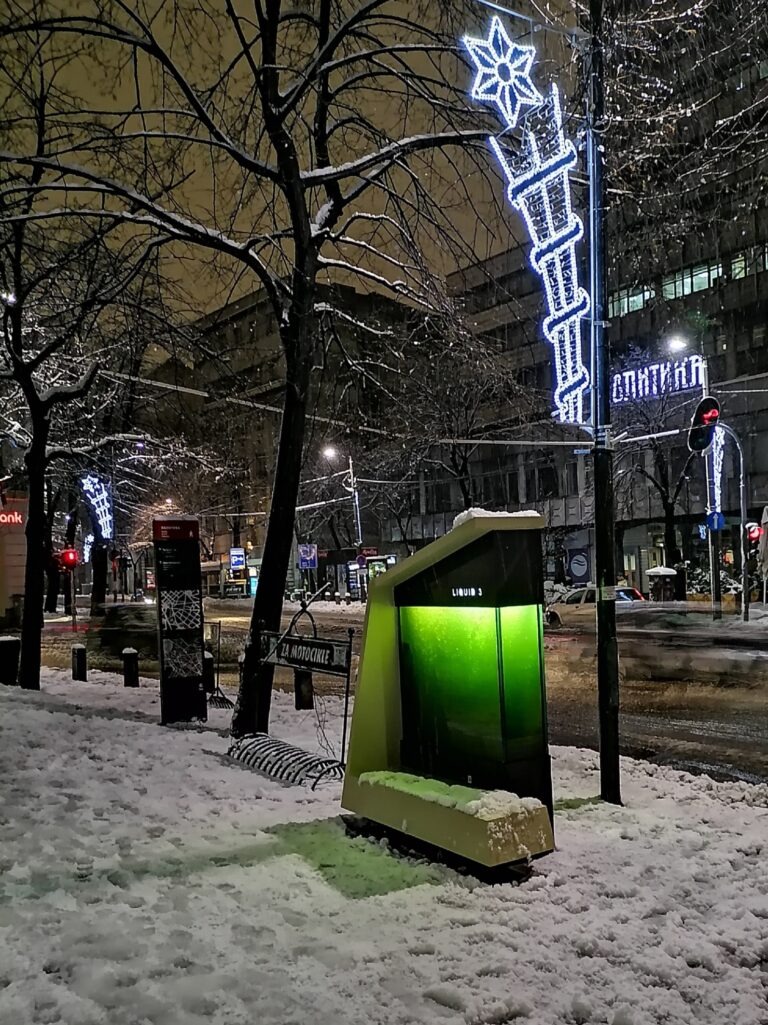
The Bigger Picture: Urban Sustainability
This innovation highlights the critical role of biotechnology in urban sustainability. It offers a glimpse into a future where cities adapt to environmental challenges with smart, efficient solutions that enhance quality of life while addressing global issues like air pollution and climate change.
The Liquid Tree is a testament to Serbia’s commitment to creating a greener, healthier future—one innovative solution at a time.

Leave a Reply